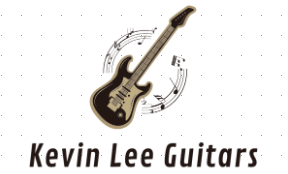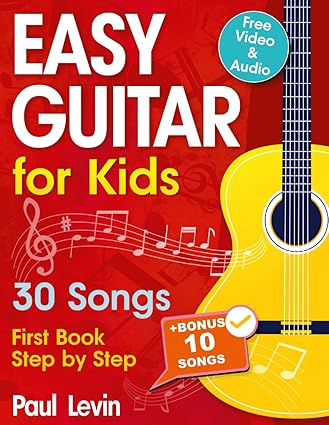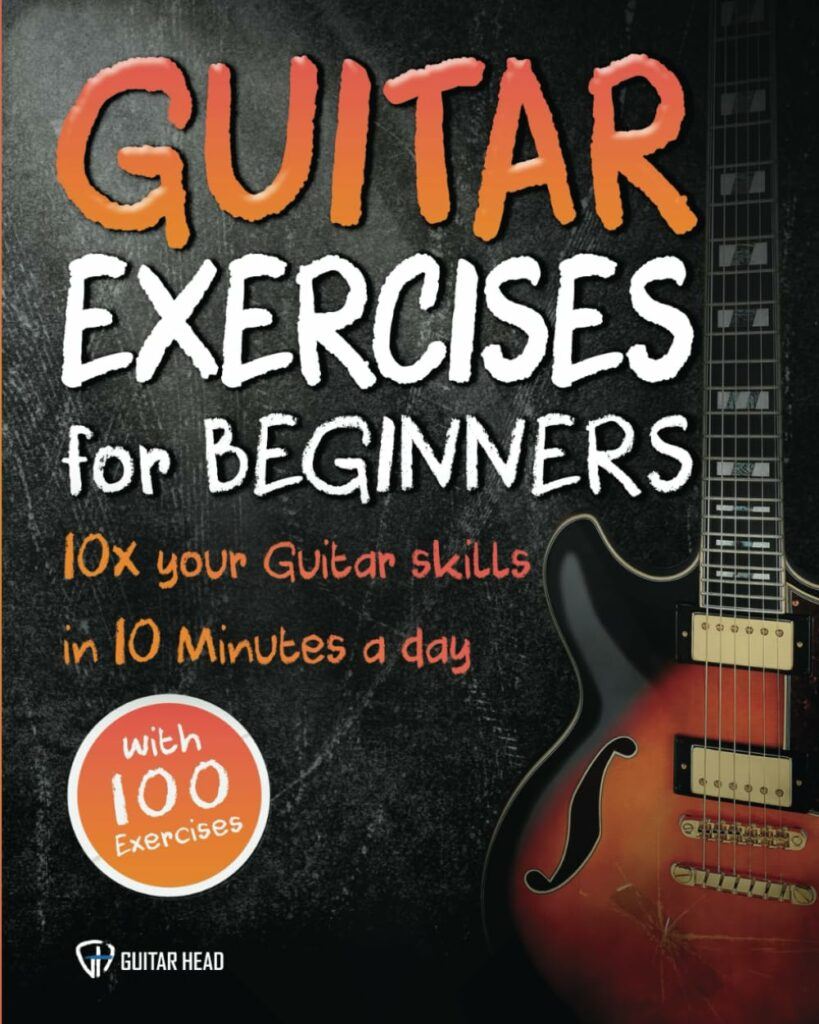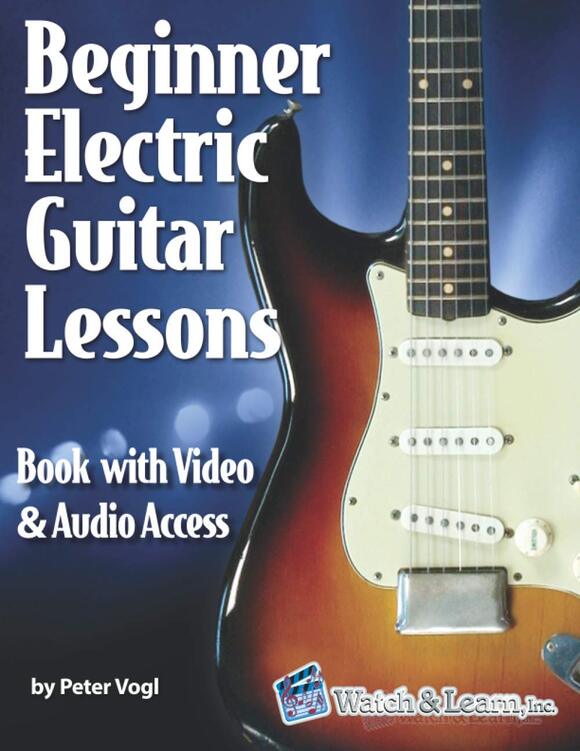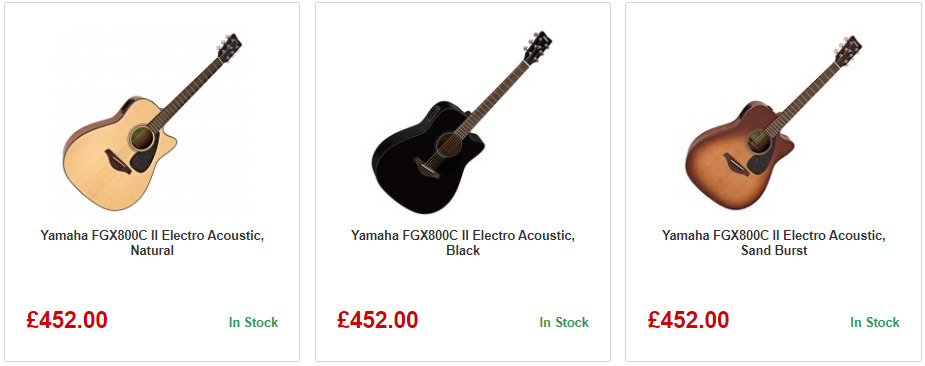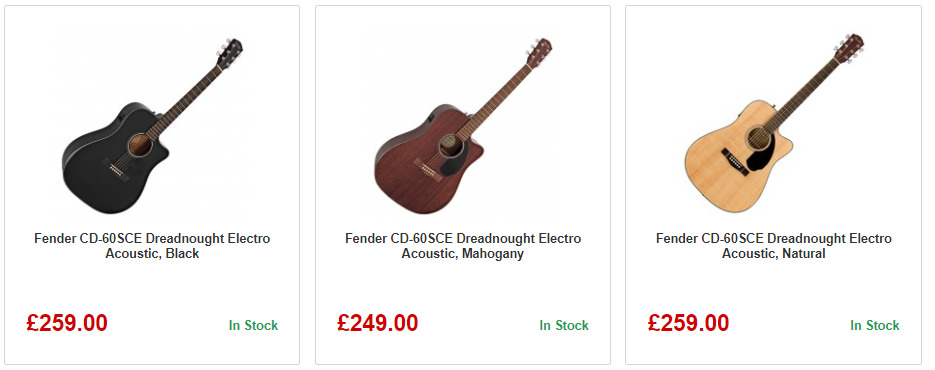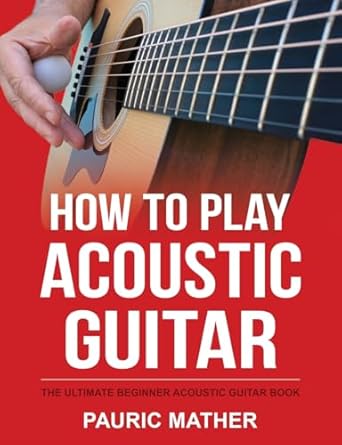Choosing the right guitar as a beginner can feel overwhelming, with so many options available on the market. However, selecting a good beginner guitar is essential for making the learning process smoother and more enjoyable. In this article, we will explore what to look for in a beginner guitar, along with some great recommendations to help you get started.
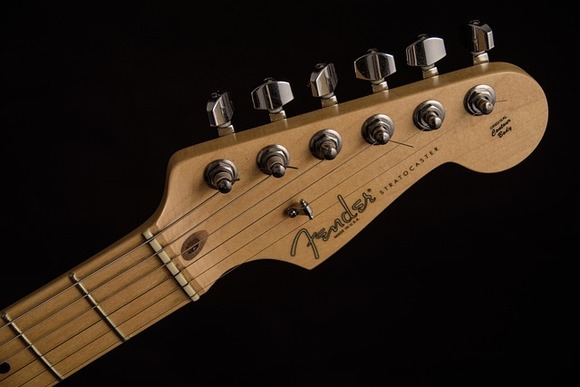
1. What Makes a Good Beginner Guitar?
A good beginner guitar should be comfortable to play, have decent sound quality, and be affordable without compromising on essential features. Here are some factors to consider when choosing your first guitar:
- Playability: The guitar should be easy to play, with a smooth neck and comfortable action (the distance between the strings and fretboard). Beginner guitars should not require too much pressure to press the strings, as this can discourage new players.
- Build Quality: A well-built guitar will stay in tune longer and produce a better tone. Even at a lower price point, the guitar should have decent construction and durable materials.
- Sound: The guitar should sound clear and pleasant, with good resonance. While you may not be looking for a professional-quality tone right away, the sound should still be enjoyable to keep you motivated.
- Affordability: For beginners, it’s best to start with a budget-friendly guitar that offers good quality. You can always upgrade later once you’ve honed your skills and feel ready for a more advanced model.
2. Acoustic vs. Electric: Which Should You Choose?
One of the first decisions you’ll make when choosing a beginner guitar is whether to go for an acoustic or electric guitar. Both have their advantages, so the choice ultimately depends on your musical preferences and learning goals.
- Acoustic Guitar: Acoustic guitars are great for beginners because they don’t require any additional equipment like amplifiers. They also help build finger strength and are versatile across many genres. Acoustic guitars are ideal for strumming chords, folk, country, and singer-songwriter styles.
- Electric Guitar: Electric guitars are typically easier to play due to lighter strings and lower action, which makes pressing down the strings less challenging. They require an amplifier to produce sound, making them a little more expensive upfront, but they’re perfect for rock, blues, jazz, and heavier music styles.
3. Recommendations for Beginner Guitars
Here are some of the best guitars for beginners, covering both acoustic and electric options:
Best Beginner Acoustic Guitars
- Yamaha F310
The Yamaha F310 is a highly popular choice for beginners due to its excellent build quality, clear sound, and affordability. Its smaller body size makes it comfortable to play, and it’s known for its durability. - Fender FA-125
Fender’s FA-125 is another solid option, offering a rich, full-bodied tone and easy playability. It’s a great entry-level guitar for anyone looking for reliable performance at an affordable price. - Epiphone DR-100
Epiphone’s DR-100 acoustic is known for its strong sound projection and well-built body. It’s ideal for beginners looking for a durable guitar that can handle a wide variety of music styles.
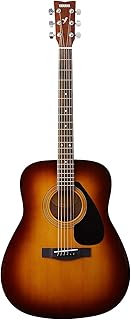
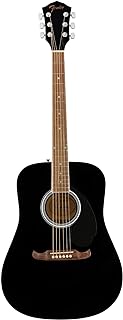
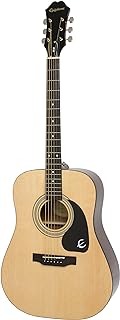
Best Beginner Electric Guitars
- Squier Affinity Stratocaster
The Squier Affinity Stratocaster, made by Fender, is one of the most well-known beginner electric guitars. It’s comfortable to play, produces a great tone, and is perfect for rock, pop, and blues genres. - Yamaha Pacifica 012
Yamaha’s Pacifica series is praised for its affordability and quality. The Pacifica 012 has an easy-to-play neck and versatile sound, making it an excellent choice for beginners looking to explore different music styles. - Epiphone Les Paul SL Ebony
For fans of the iconic Les Paul shape, the Epiphone Les Paul SL Ebony offers a fantastic entry point into electric guitar playing. It delivers great tone and is built to last, making it a worthwhile investment for beginner guitarists.
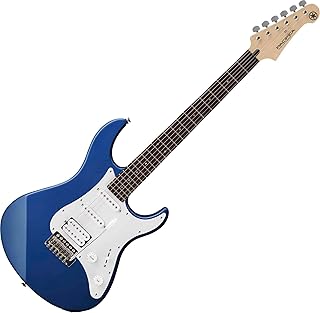
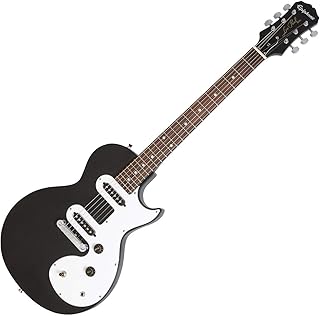
4. What to Look for in a Beginner Guitar
When shopping for your first guitar, it’s important to consider a few key features:
- Size and Shape: Make sure the guitar fits your body comfortably. If you’re smaller or buying for a child, consider a smaller guitar or a ¾-size guitar.
- Action: The strings should not sit too high above the fretboard. Low action is easier for beginners to play.
- Type of Strings: Beginners often prefer lighter strings, as they are easier on the fingers. Nylon-string acoustic guitars are also an option for a gentler playing experience, especially for classical or flamenco styles.
5. Acoustic-Electric Guitars: A Hybrid Option
If you want the versatility of playing acoustically and amplified, consider an acoustic-electric guitar. These guitars are essentially acoustic guitars with built-in electronics, allowing you to plug into an amplifier or PA system when needed. Some beginner-friendly acoustic-electric guitars include:
- Yamaha FGX800C
This guitar offers great sound, a built-in preamp, and the ability to plug in for amplified playing, all while maintaining an affordable price. - Fender CD-60SCE
Fender’s CD-60SCE is a solid choice for beginners who want to try both acoustic and amplified playing. It’s easy to play, sounds great, and offers the flexibility of an acoustic-electric guitar.
6. Final Tips for Buying Your First Guitar
- Test It Out: If possible, visit a music store and try out different guitars. Even if you don’t know how to play yet, feel the weight and fit of the guitar in your hands.
- Starter Packs: Many guitar manufacturers offer beginner guitar packs that include accessories like tuners, picks, straps, and sometimes an amplifier (for electric guitars). These packs offer great value for first-time players.
- Set a Budget: While it’s tempting to splurge, it’s better to start with a guitar that fits your needs and budget. You can always upgrade once you’ve gained more experience and a better understanding of what you want.
Conclusion
A good beginner guitar doesn’t have to break the bank. Whether you’re drawn to the rich sound of an acoustic or the electric vibes of a rock guitar, there are plenty of affordable, high-quality options to choose from. Start with a guitar that feels comfortable, sounds good, and inspires you to play, and you’ll be on your way to becoming a confident guitarist.
